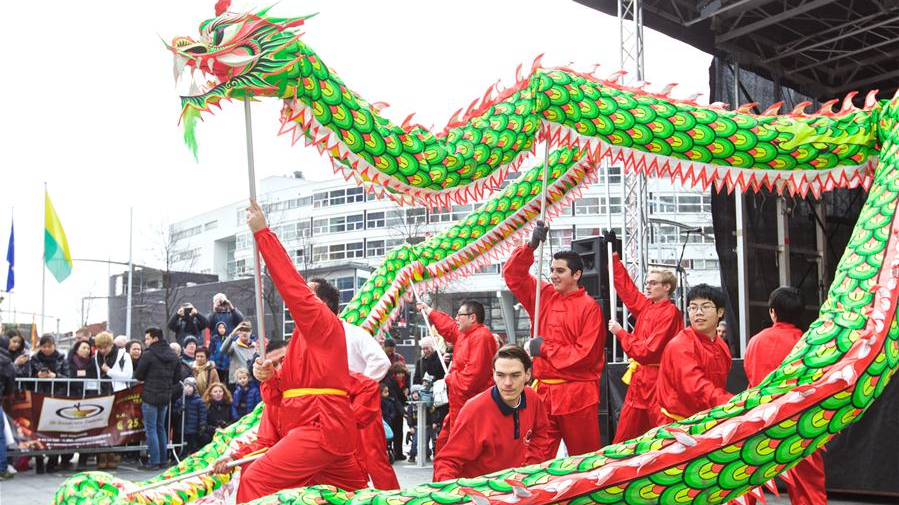
Local dragon dance team takes part in the festivities celebrating the Chinese Lunar New Year in The Hague, the Netherlands, January 28, 2017. /Xinhua
Local dragon dance team takes part in the festivities celebrating the Chinese Lunar New Year in The Hague, the Netherlands, January 28, 2017. /Xinhua
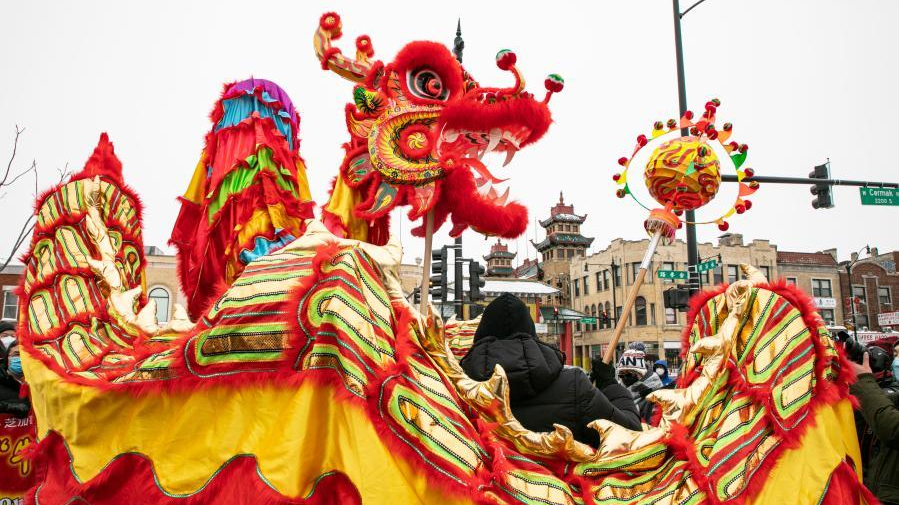
An event to celebrate the Chinese Lunar New Year is held in Chicago, U.S., February 6, 2021. /Xinhua
An event to celebrate the Chinese Lunar New Year is held in Chicago, U.S., February 6, 2021. /Xinhua
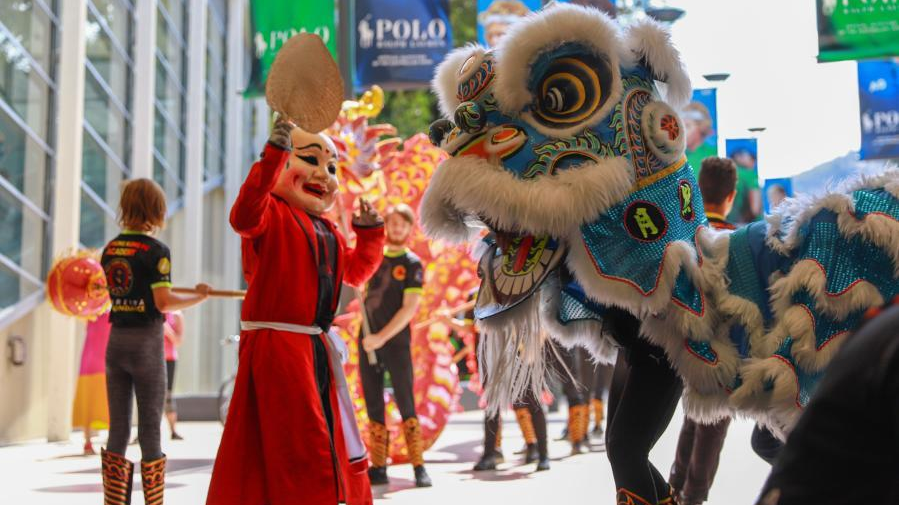
A dragon and lion dance performance held to celebrate the Chinese Lunar New Year, in Canberra, Australia, February 13, 2021. /Xinhua
A dragon and lion dance performance held to celebrate the Chinese Lunar New Year, in Canberra, Australia, February 13, 2021. /Xinhua
It is that time of the year when China and much of East Asia is all set to welcome the Chinese Lunar New Year, which falls on February 1 this year, that also sets off the week-long Spring Festival. While the festival is one of the most important holidays in China, it is also celebrated with equal aplomb by the Chinese diaspora and the Asian community spreading all around the world.
The COVID-19 pandemic may have disrupted the scale of festivities over the past two years, but that hasn't stopped the spirited Chinese diaspora from continuing to celebrate the Spring Festival with the objective of maintaining the Chinese cultural tradition and heritage in foreign lands.
CGTN Digital spoke with a few members of the Chinese diaspora in different countries to get a glimpse into their experience of celebrating the Spring Festival over the years and also a peek into this year's plans.
Edited excerpts from three such individuals:
Jun Wen, Australia
Jun Wen is a lecturer of tourism and hospitality management at the School of Business and Law, Edith Cowan University, in Perth, Australia. Originally from China, Jun has lived in New Zealand from 2012 to 2018 and moved to Australia in 2019.
'Feeling of warmth from motherland'
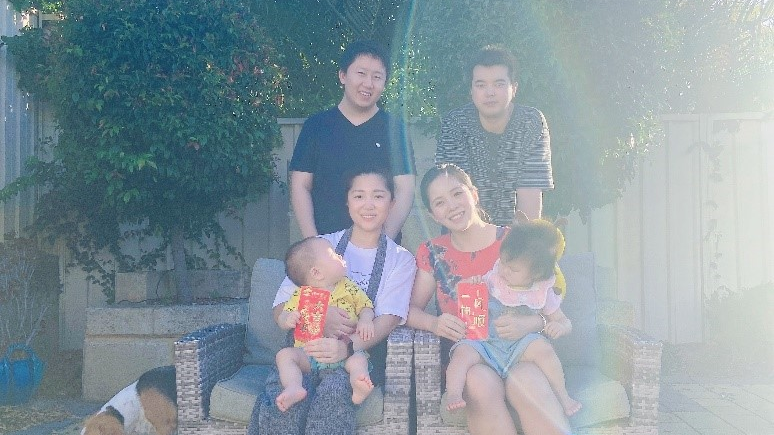
Jun Wen (R, standing) with his family and friends during Spring Festival celebrations in Perth, Australia, February 2021, Perth. /Jun Wen
Jun Wen (R, standing) with his family and friends during Spring Festival celebrations in Perth, Australia, February 2021, Perth. /Jun Wen
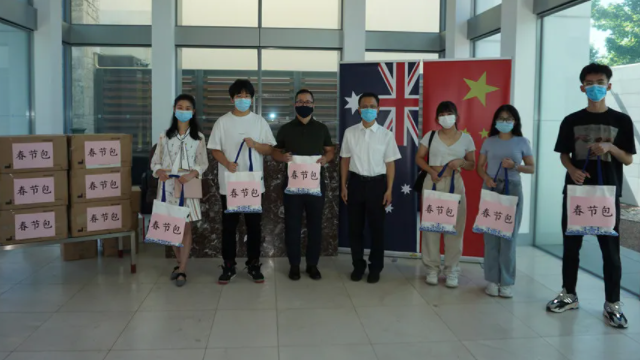
The Chinese consulate in Perth gave out "Spring Festival package" to Chinese student representatives this year. /Jun Wen
The Chinese consulate in Perth gave out "Spring Festival package" to Chinese student representatives this year. /Jun Wen
Based on my observations in the past years of working overseas, the majority of the Chinese diaspora around me still keep our Chinese heritage and tradition alive during the Spring Festival and spend time with families and relatives. We either celebrate at home by cooking ourselves or at restaurants to be more formal. For my family, we celebrated the Spring Festival at a Chinese restaurant in 2021 to embrace the new year with my one-year-old daughter at that time.
I am happy to share that the Chinese consulate in Perth this year welcomed Chinese students from universities in Western Australia and representatives of local overseas Chinese groups to extend the new year greetings as the consulate is very concerned about their health and safety especially in the COVID-19 pandemic. These Chinese student representatives received a small "Spring Festival package" from the consulate that gave all of us a feeling of warmth from the motherland.
As a university teacher, I would also like to extend my best wishes to all Chinese students overseas who cannot return home to celebrate the Spring Festival with families.
Due to the COVID-19 situation in Australia, this year's Spring Festival celebration in Perth will be on a small scale for my family. We will celebrate with other colleagues' families and make dumplings at home. Large scale Spring Festival-related events are cancelled due to COVID-19.
Unforgettable memories from home
Celebrating the Spring Festival allows me to recall good memories of growing up in China before moving overseas to New Zealand and Australia in the past decade. I can clearly remember my family celebrating the Spring Festival with my one-year-old daughter at an authentic Chinese restaurant to enjoy Chinese traditional food. Although my daughter was born in Australia, I still hope she can learn as much Chinese history and language as possible to be grateful for Chinese heritage in her life.
During the festival, I miss my grandparents who passed away in 2018. Celebrating with older generations in my family gave me unforgettable memories and the realization of the importance of the family in my life. I miss the dumplings made by my grandmother, it is not about how delicious the dumplings were, instead, it is the unconditional love and care from her to make me feel safe and happy.
The last time I celebrated the Spring Festival in China was way back in 2014 when I completed my Masters in New Zealand. My strongest feeling whenever I am back in China is to be surprised by the rapid developments. I love to visit Nanluoguxiang (a traditional shopping and food street) in Beijing due to its strong Chinese traditional flavor and culture. I hope to take my family, especially my daughter, back to China in 2023 to celebrate the Spring Festival and to experience China in greater detail.
Albert Niu, U.S.
Albert Niu is a 17-year-old boarding school student at the Governor's Academy in Byfield, Massachusetts, the U.S. Originally from Shanghai, China, Albert has been living in the U.S. for the past three years.
Chinese hotpot trip and FaceTime with family
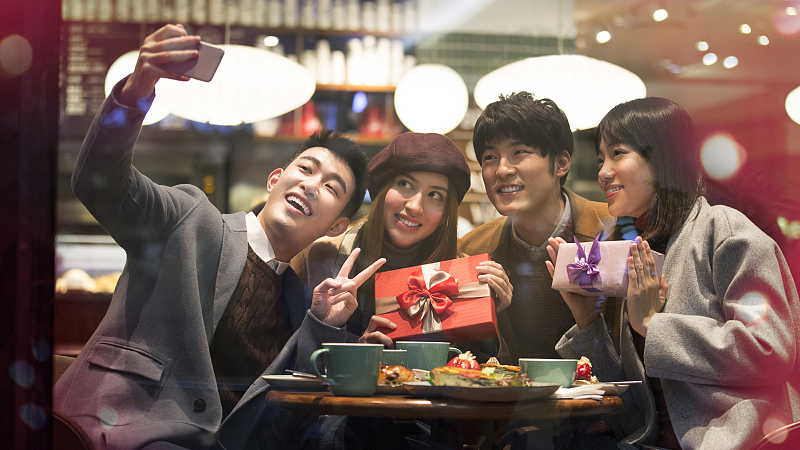
Chinese and Asian students in schools and universities in the U.S. normally celebrate the Chinese Lunar New Year's eve with a dinner with friends. /CFP
Chinese and Asian students in schools and universities in the U.S. normally celebrate the Chinese Lunar New Year's eve with a dinner with friends. /CFP
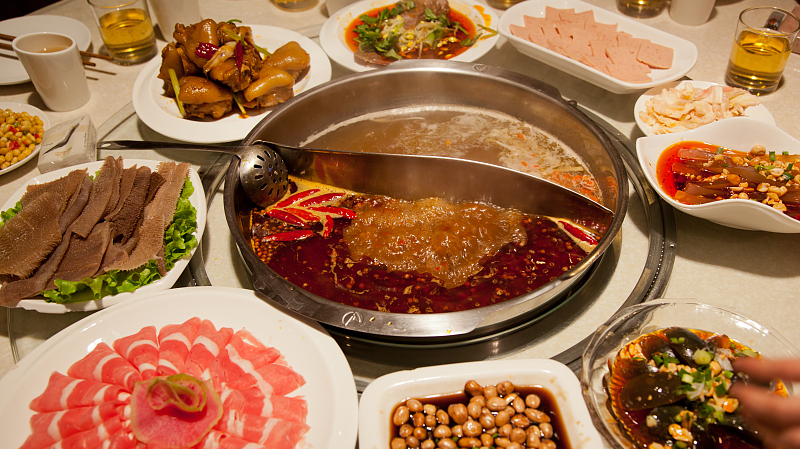
On Chinese Lunar New Year's eve, the international student alliance in the U.S. hosts a trip to a local Chinese hotpot restaurant. /CFP
On Chinese Lunar New Year's eve, the international student alliance in the U.S. hosts a trip to a local Chinese hotpot restaurant. /CFP
This year I will spend the Spring Festival in my boarding school. On the Chinese Lunar New Year's eve, the international student alliance hosts a trip to a local Chinese hotpot restaurant, and all Asian international students enjoy delicious food from their homes.
In addition, the school dedicates a morning meeting to the celebration of the Spring Festival. Asian students are invited to share their knowledge on the traditions and celebrations with the entire student body. For example, during the Spring Festival in 2020, a student dressed up as a rat, signifying the coming of the Year of the Rat, and spoke to the school about Chinese culture.
Family matters most to me. Therefore, although I am separated from my parents and grandparents physically, I will call them on FaceTime and spend the New Year's countdown exchanging best wishes and taking new year resolutions. Hopefully, I'll also get the customary red packets from my family.
The COVID-19 definitely has an impact on the Spring Festival celebrations in my community. Since all-school meetings can't be held, the skits about Asian cultures are cancelled. Interactions between Asian students are also restricted due to social distancing protocols. The hotpot trip was nearly cancelled too. It took the international student alliance a lot of effort to ensure that the trip is safe enough for the Asian students. The lack of public gatherings has negatively impacted the holiday spirit at my school.
Missing the festive spirit from homeland
I miss many aspects of the Spring Festival in China - the food, the fireworks, the gifts. But most of all I miss the holiday atmosphere. In China, as I walk around my house, I see people wearing festive colors and gleeful smiles, shops advertising their new year specials, restaurants decorated in all shades of red, and Chinese couplets on every door in the neighborhood. Weeks building up to the New Year, I bask in the spirit of the Spring Festival. In the U.S., limited by the number of people celebrating the festival, the community is no way near as festive.
The last time I celebrated Spring Festival in China was in January 2021, as I spent my high school sophomore year in virtual learning. Before that, it was the spring of 2019.
The New Year's eve dinner is always the most memorable. Mom and dad spend the entire day in the kitchen. Mom brews the broth as dad cooks the spiced chicken, and I wait in the living room, constantly allured by the aroma of the broth that pervades the room. At 8 pm, the dining table is filled with plates after plates of ambrosia. Stewed chicken, steamed fish, slices of spiced pork … in the center are the dumplings of two or three different flavors, delicate and exquisite.
We put on the TV in the background, and start talking. The first few minutes are new year wishes, and then the conversation always transitions to nostalgia. The clock rings midnight. Mom and dad force me to bed although I always wish to stay up the entire night. I lie in bed, replaying the day, envisioning the first day of the new year, waiting for another New Year's eve.
Lulu Hansen, the Netherlands
Lulu Hansen is a Dutch-Chinese media professional who has lived most of her life in the Netherlands and the United States. She has been living in Beijing, China since 2020.
Food connects with cultural roots
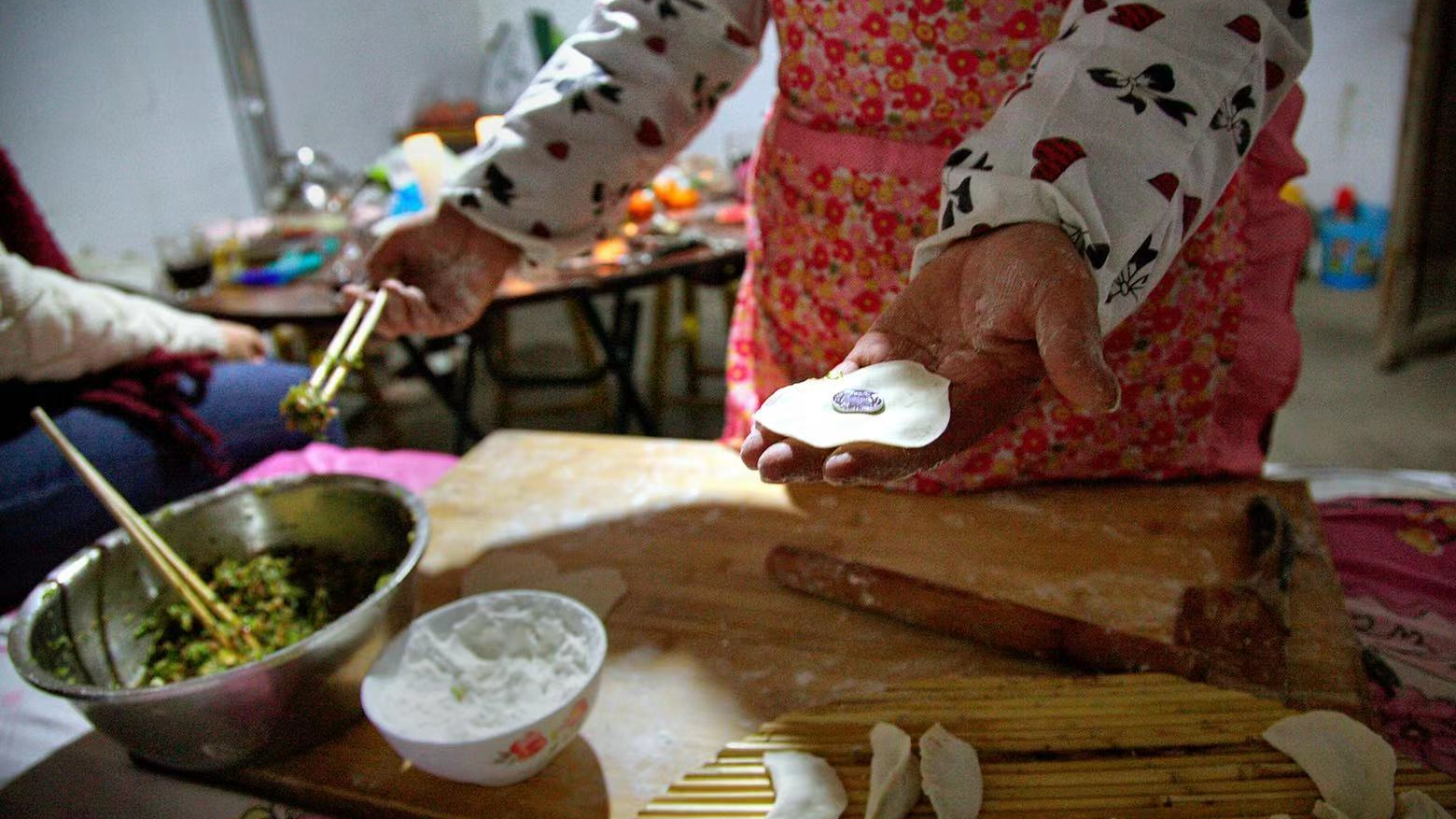
Making dumplings at a village in China's Hebei Province during the Spring Festival, 2021. /Lulu Hansen
Making dumplings at a village in China's Hebei Province during the Spring Festival, 2021. /Lulu Hansen
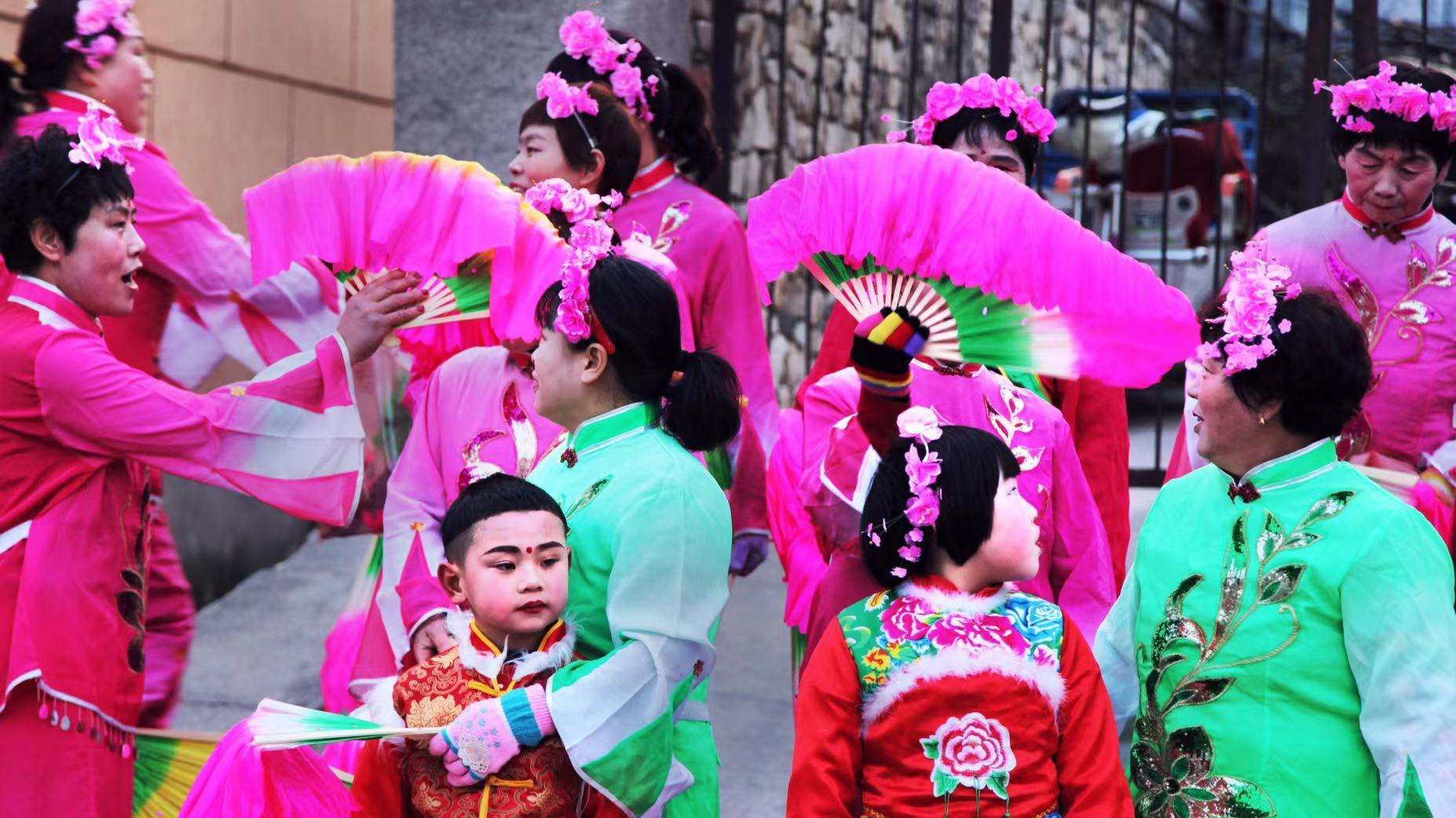
Women and children parade in colorful costumes in a village in China's Hebei Province during the Spring Festival, 2021. /Lulu Hansen
Women and children parade in colorful costumes in a village in China's Hebei Province during the Spring Festival, 2021. /Lulu Hansen
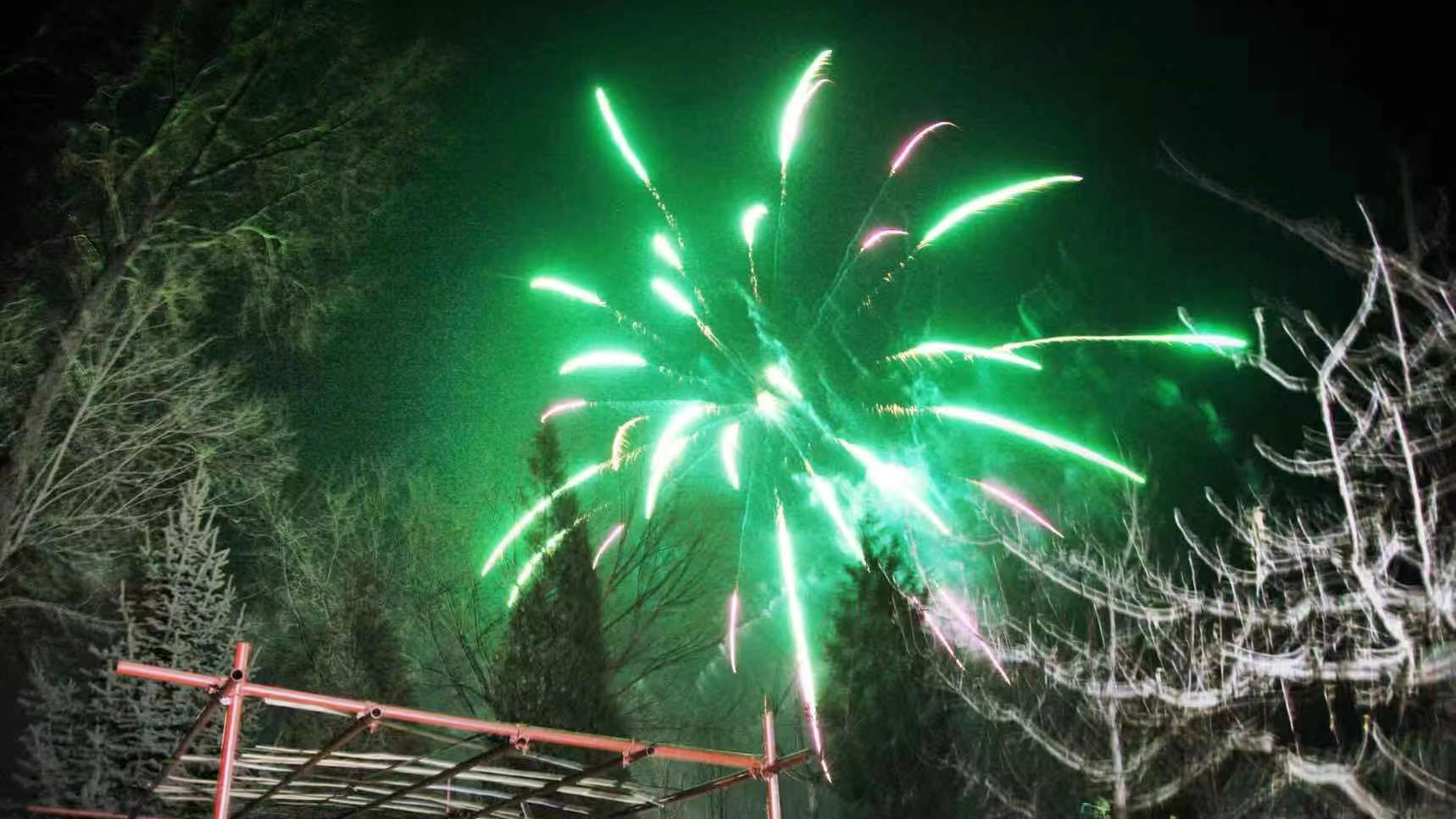
Fireworks seen from a hillside in a village in China's Hebei Province during the Spring Festival, 2021. /Lulu Hansen
Fireworks seen from a hillside in a village in China's Hebei Province during the Spring Festival, 2021. /Lulu Hansen
Growing up in the Netherlands, we often had dim sum or roast duck from favorite Chinese restaurants on weekends. For the Chinese Lunar New Year, we would usually gather the extended family for round-tabled banquets. The restaurants changed over the years, from serious "imperial" cuisine ones with wood and enamel ceilings to floating multi-tiered pavilions bordered with gold dragons and red lanterns, but the tradition of meeting family over a new year's feast – defined by my now 100-year-old grandmother as including fish, fowl, and meat – carried on.
For many of us in the diaspora and children born abroad, food is an essential way to connect with familial and cultural roots. When I became an adult and was studying for a graduate degree in the chilly east coast of the U.S., I hosted a dumpling party in my studio apartment for Chinese New Year, turning the heat up high. Friends who were largely aspiring Sinologists came and stayed till the wee hours, walking home in fresh fallen snow. My one regret was that the ground pork we used didn't contain enough fat to be juicy as a filling. Inadvertently, we had diet dumplings thanks to American health-consciousness.
The Netherlands is in a lockdown mode this year, with restaurants and other public venues closed for the foreseeable future. My ever-industrious mother will probably make a plentiful dinner though it will just be my father and her this year.
'I still miss fireworks'
I am in Beijing and my community seems quiet this year, likely due to the pandemic. I will spend Chuxi Eve at a friend's house in the suburb. The hubbub of their bustling, big-hearted family should be a welcome change from the solemnity of our tenements.
From childhood till now, I still miss fireworks, especially the intricate ones you can set off yourself without needing to run from the flash or boom. My favorite was always the Magician's Wand, which shoots out different-hued fireballs in deliberate succession. They blaze beautifully and can fly high. A child with such a wand in her hand can wield shooting stars.
The last Spring Festival I celebrated properly was pre-COVID-19, in a rustic Hebei village whose women paraded in bright pinks and jades at dusk. From the hillside, we saw a wild profusion of fireworks – the colors, the noise, the joy of welcoming a new spring and sending off the old Nian monster! The dumplings were hefty and hot and I slept on a "kang" (a traditional platform used for sleeping in northern China) for the first time, too cold at first then boiling. In the morning, we hiked up to a section of the Great Wall: folk life and imperial grandeur in one.

